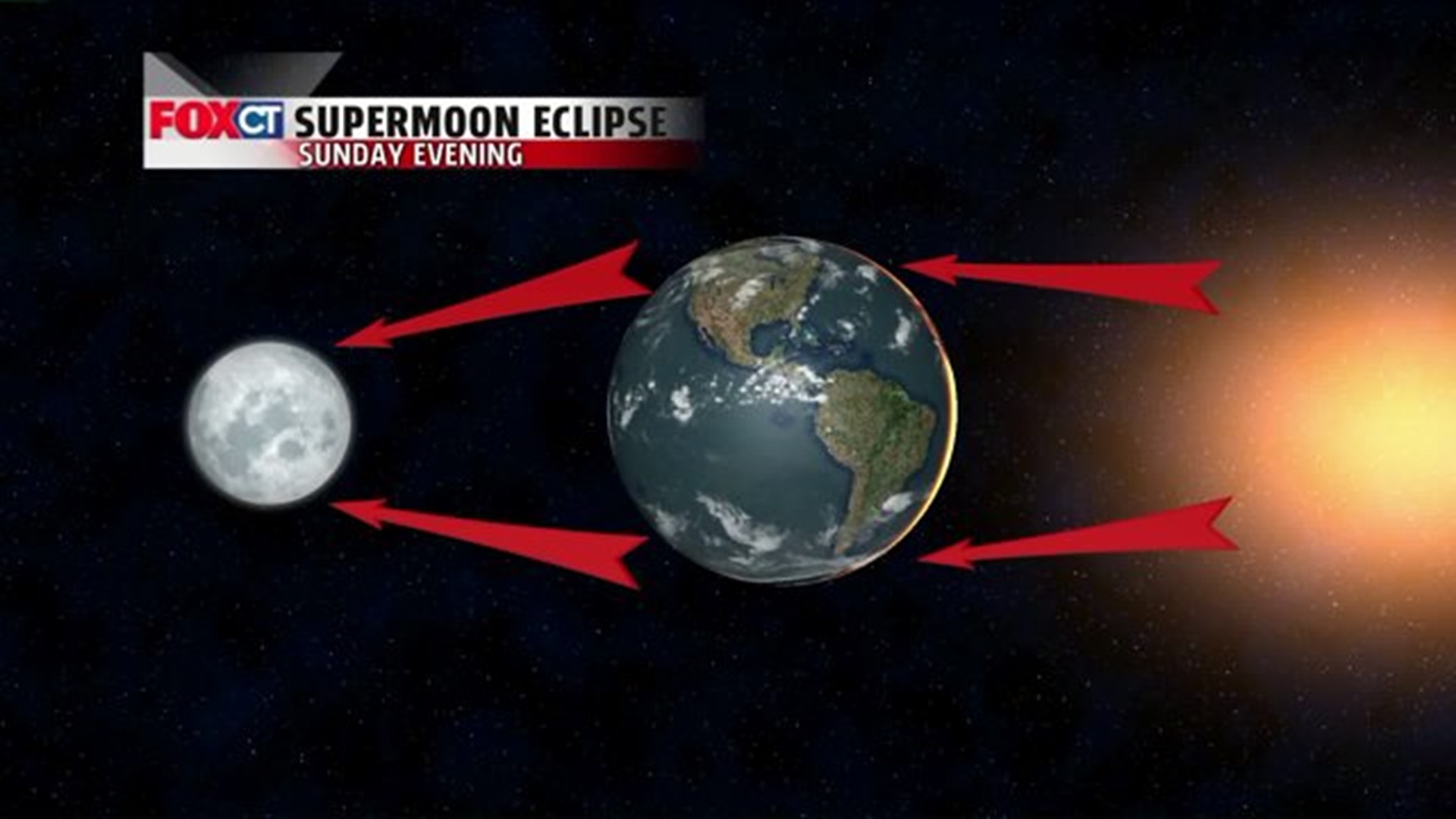As long as the skies are clear, a total lunar eclipse paired with a larger-than-average moon will be a great way to finish up your Sunday evening.
It all kicks off in the evening around 9 p.m. It’ll reach totality just before 11 p.m., and finish up just after 1 a.m.
The Earth is essentially throwing shade on the moon. As we pass in between the moon and the sun, our shadow is cast all over the lunar surface, leaving a window of a few hours to observe this phenomenon.
In the last 17 months, there have been four lunar eclipses, so these aren’t completely rare. In terms of a supermoon eclipse, when the moon is at its closest point: our last one was in 1982, and we won't have another until 2033. The good news is that almost everyone in the western hemisphere can see it, along with many of those in Europe and western Africa.
Here’s a quick fun story about lunar eclipses: Did you hear about the time a lunar eclipse saved Christopher Columbus's life? On the island of Jamaica in 1504, Columbus was frustrated with the lack of cooperation from the local Arawak people. Using his knowledge of astronomy, and with help from an almanac he owned, he knew there was an upcoming lunar eclipse a few days later. He told the local people that his God was mad with them for their lack of cooperation and would make it known in the sky. Sure enough, the Arawaks were astounded to see the eclipse, and followed everything Columbus said from that point on.
The Talcott Mountain Science Center will be open and available for viewing the lunar eclipse of the ‘supermoon.’
The Rolnick Observatory in Westport will open the dome at 9:00 p.m. to view the Super Blood Moon as it moves into Earth's shadow.
Western Connecticut State University Westside Observatory will hold a special public viewing from 9 p.m. to midnight on Sunday, Sept. 27 on the university’s Westside campus.
In our area, the the partial eclipse will begin at 9:07 p.m. and the total eclipse will begin at 10:07 p.m. The middle point of the eclipse will be 11:47 p.m. and it will end at 12:27 p.m.

